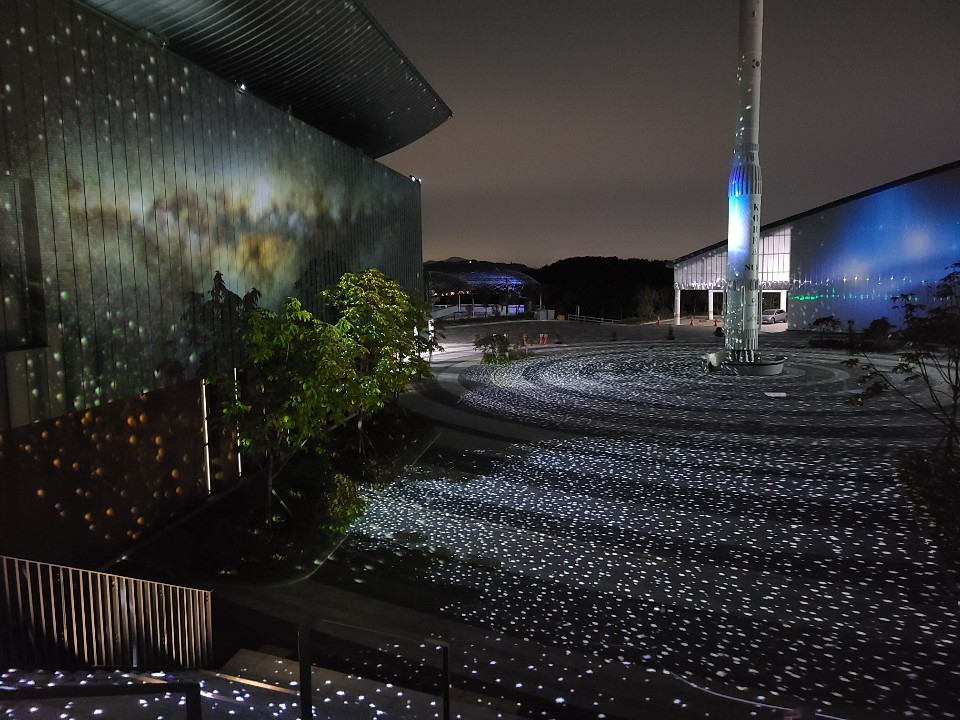 |
Media art is shown at the Starlight Aurora Plaza in front of the Miryang Arirang Observatory. (Miryang Arirang Observatory) |
Alien Festival at Miryang Arirang Observatory
Have you ever wondered about alien species and extraterrestrial beings?
A space-themed “Alien Festival” delving into scientific experiments and extraterrestrial mysteries will kick off this weekend at Miryang Arirang Observatory located in Miryang, South Gyeongsang Province.
The two-day festival is packed with family-friendly games and programs which will stimulate imagination and curiosity.
Inside the observatory, the entire second floor will be turned into an escape room. You will be thrown into mysterious, but scientific, missions to solve. As the venue will be dark with no lights, the center recommends participation by children in upper elementary school or older.
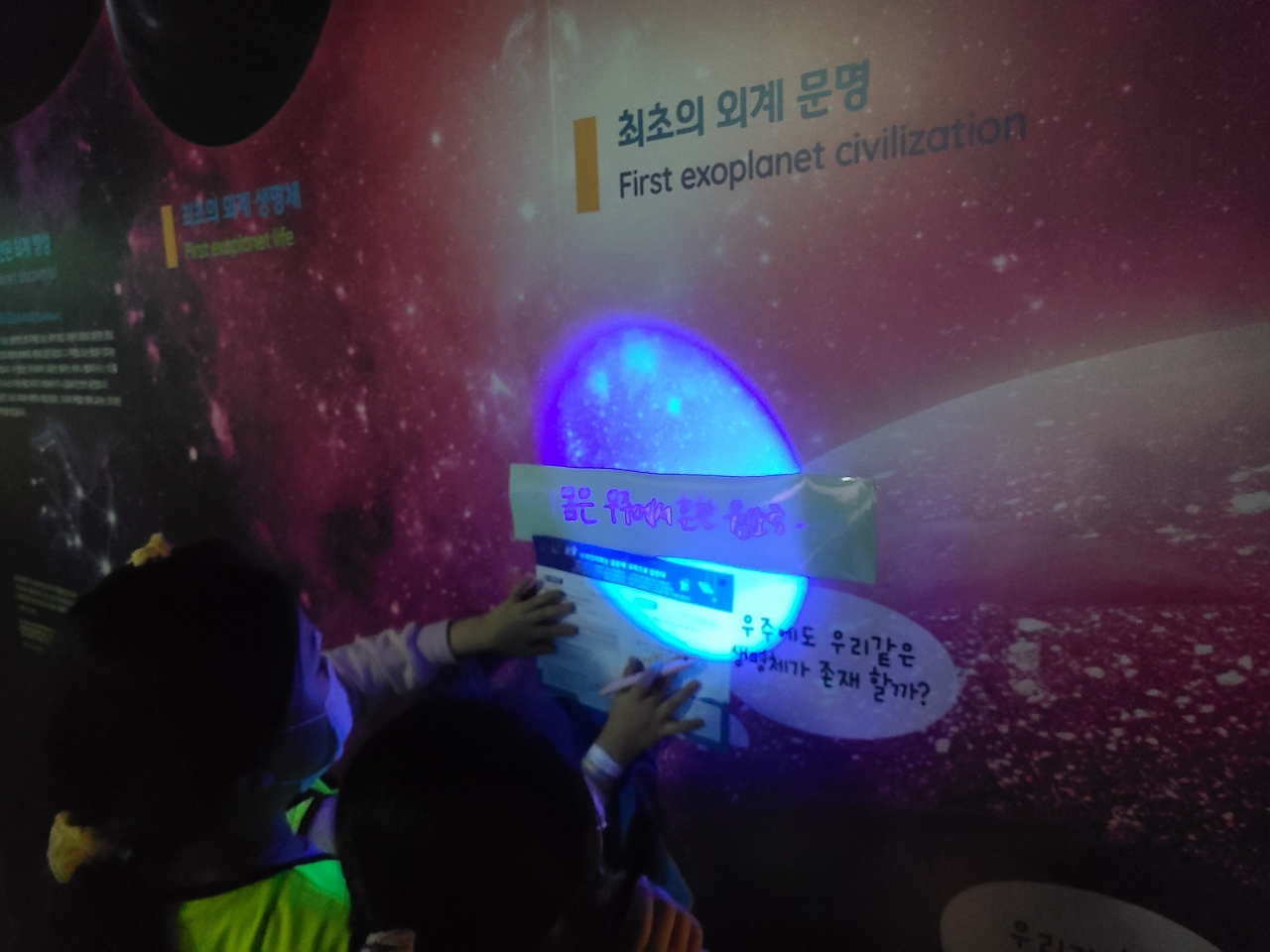 |
Children participate in a previous “Alien Festival.” (Miryang Arirang Observatory) |
Outside, about 11 booths each featuring different experiments will be set up. You can witness a super explosion when Mentos meet cola, make a cannon using the power of air, and change your voice by inhaling helium.
At some science-meets-arts-themed booths, you can listen to music inspired by the number "pi" and write a letter in an alien language. You can also create your own alien mask and meet Alpakonis -- a mascot for the observatory who touched down on Earth 600 years ago.
A life-size board game will be set up where participants will become players in a survival game, featuring different planets.
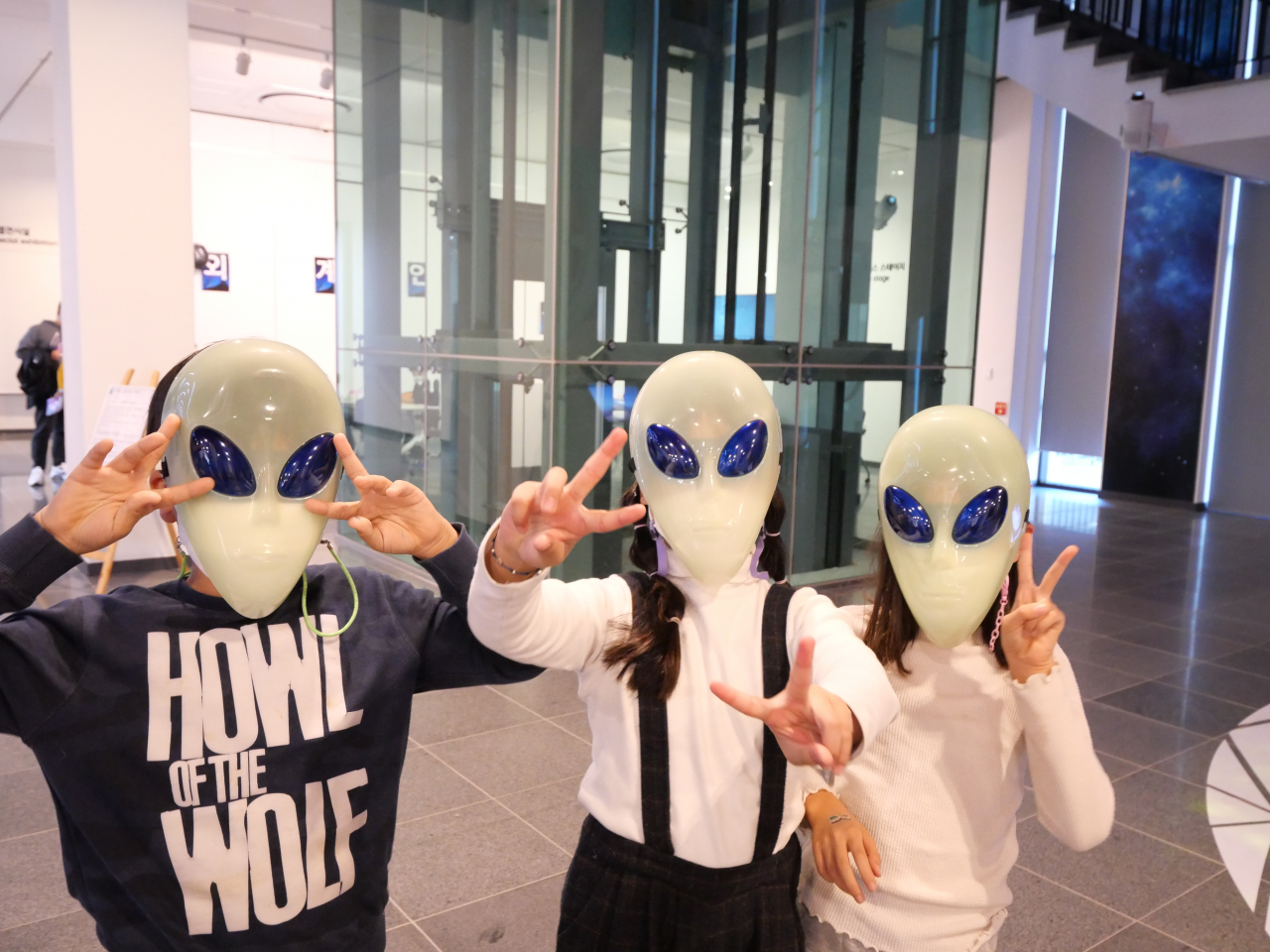 |
Children pose with their alien masks on during a previous “Alien Festival.” (Miryang Arirang Observatory) |
At a shooting center, in the corner of the plaza, you can practice with toy arrows or polystyrene guns in training for space warfare.
The festival runs from 10 a.m. to 5 p.m. with entrance fees of 5,000 won for adults and 2,000 won for students aged 7 to 18.
After sunset, enjoy a starry evening stroll at the Starlight Aurora Plaza where galaxy-inspired media art will illuminate the open garden.
If you are up for a more cosmic adventure, nighttime programs at the planetarium also operate from 6 p.m. to 9 p.m. with specially discounted fees for this weekend -- 2,000 won for adults and 1,000 won for students. The daytime observatory is open during the festival period while general exhibition rooms will be closed.
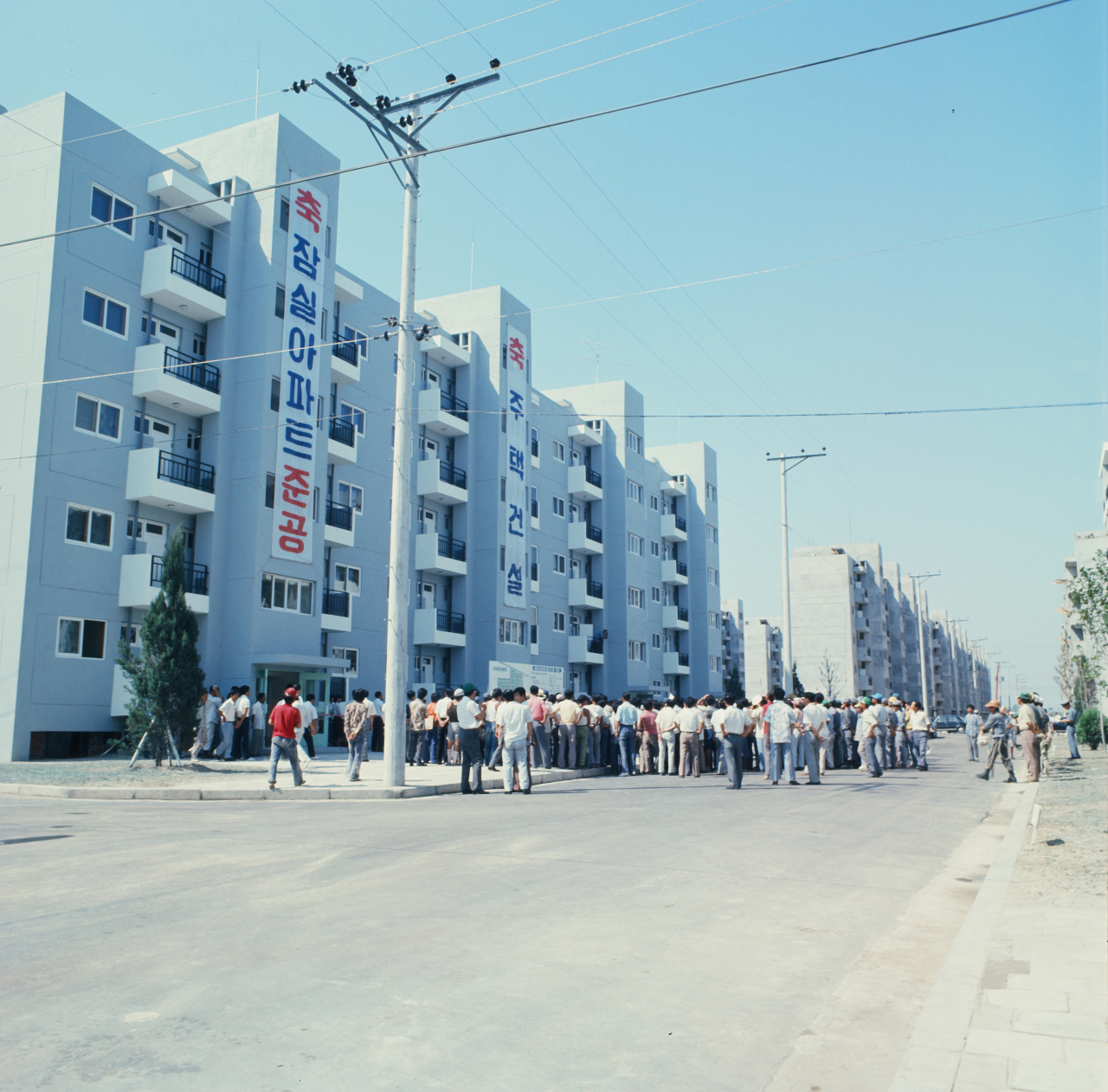 |
An apartment complex dedication ceremony is held in Jamsil, in August 1975. (Seoul Urban Life Museum) |
Time travel to '60s Seoul
What kind of homes do Seoulites want today?
An answer may be gleaned from looking at Seoul’s changing urbanscape over the past 70 years.
The Seoul Urban Life Museum, near Taereung Station Exit No. 4, is holding "Residential Life in Seoul," an exhibition exploring the lifestyles of Seoulites from the 1950s to the late 1970s.
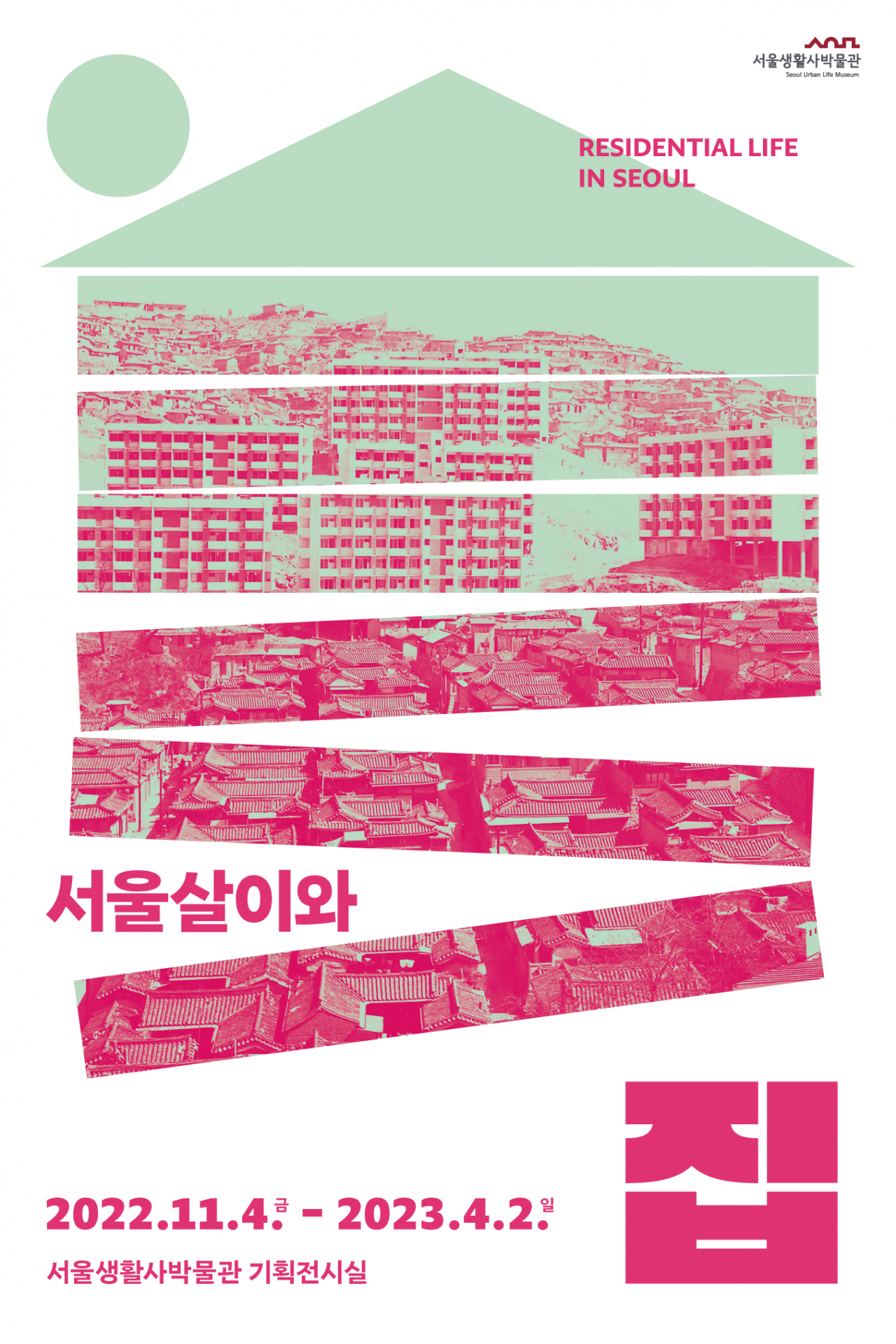 |
Poster for "Residential Life in Seoul" (Seoul Urban Life Museum) |
Presented in four parts, the exhibition delves into moments in modern history when peoples' aspirations grew in line with rapid economic growth and housing development ideas.
Liberation from Japanese colonial rule was soon followed by the Korean War. Even during the turbulent and chaotic times, people flocked to Seoul for a variety of reasons -- some to find a job and some in search of a better life.
As the population swelled in the capital, efforts to accommodate the sudden influx of people resulted in the construction of housing based on Western lifestyles.
From urban hanok in Seongbuk-dong to urban renewal projects in Anam-dong and apartment complexes in Jamsil, how the large-scale government-led housing initiatives introduced new ways of living is shown through records, photos, maps and short videos.
The exhibition runs through April. 2 in the special exhibition hall on the museum's fourth floor. Admission is free. The museum is closed on Mondays.
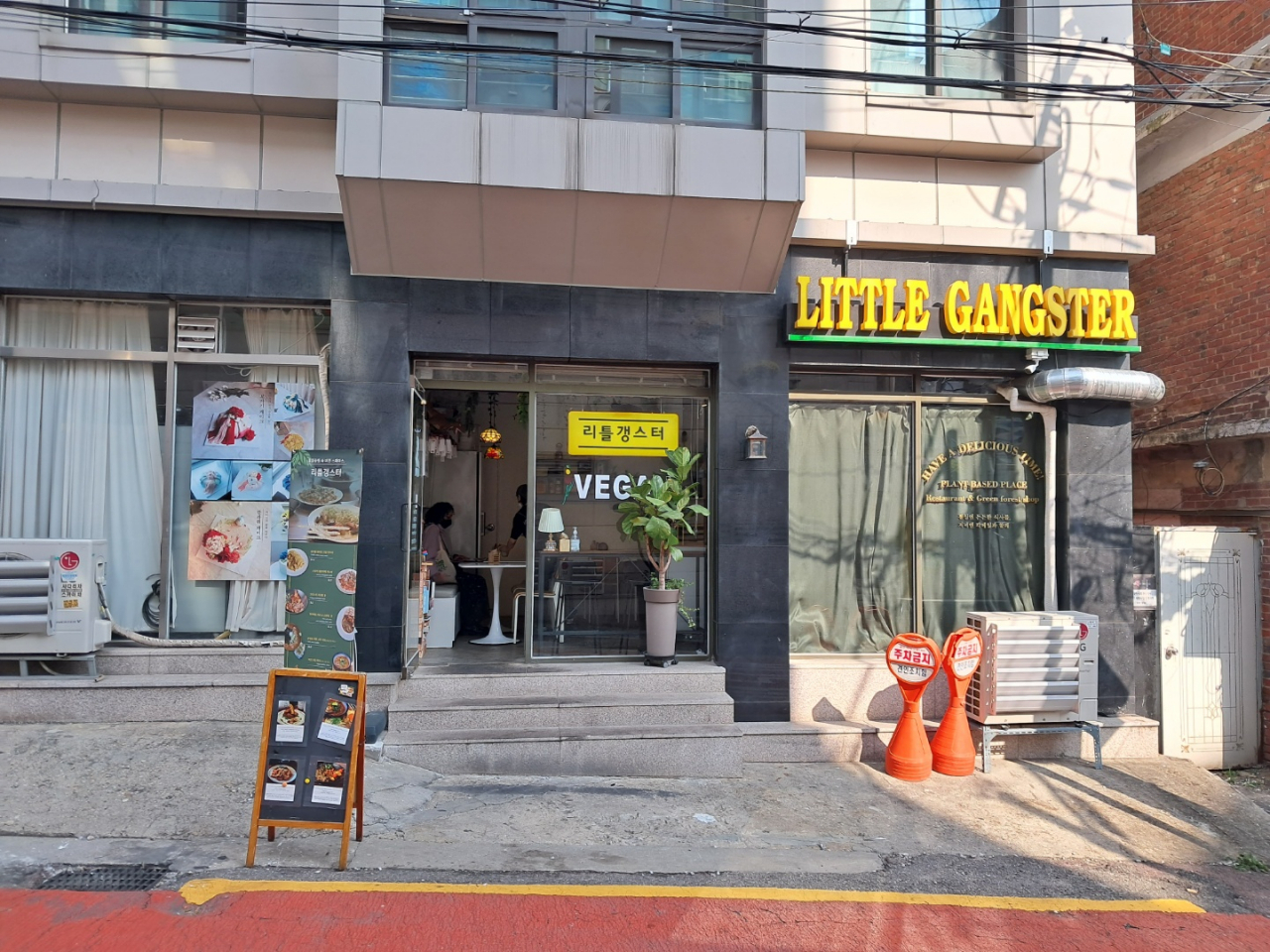 |
Little Gangster (Lee Si-jin/The Korea Herald) |
Vegan restaurant Little Gangster
Are you still hesitant to try vegan food? Do you think vegan dishes are not filling?
A cozy, vegan restaurant near Hyochang Park in Yongsan-gu, central Seoul, is out to challenge preconceptions
About a 5- to 6-minute walk from Hyochang Station Exit No. 6, in the direction of Yongmun-dong Community Center, the menu board signals the entrance to the restaurant with a yellow sign read ing “Little Gangster.”
Little Gangster is an open kitchen restaurant filled with delicious smells and atmosphere.
The restaurant offers two pasta dishes -- truffle white cream pasta and smokey Bolognese pasta, crispy mushroom bowl and Thai red curry with chickpea croquette and naan. A vegan version of Malaysian soup laksa is available as a seasonal dish and kimchi arancini lumpia is a side dish the chef strongly recommends.
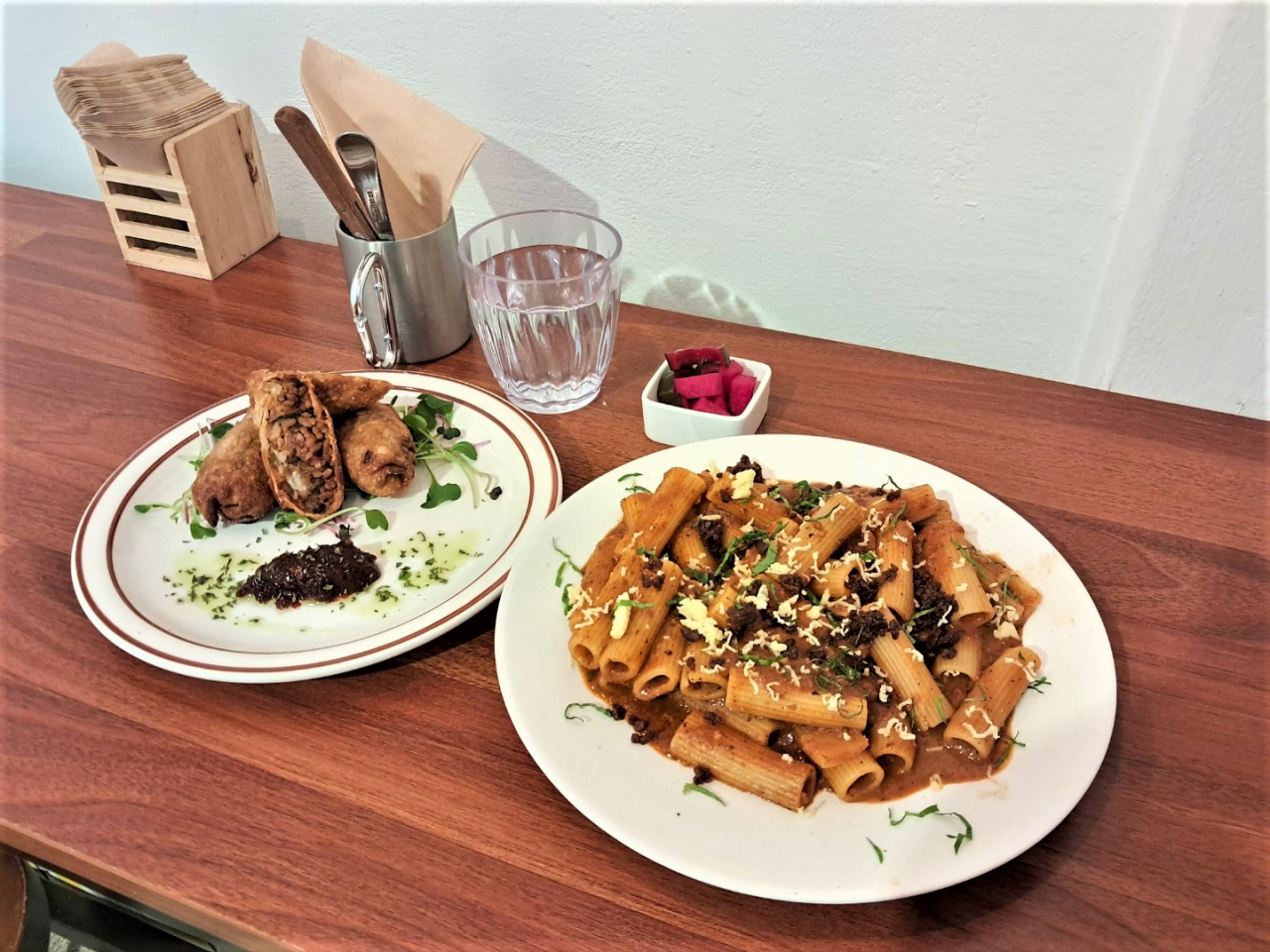 |
Kimchi arancini lumpia (left) and smoky Bolognese pasta (Lee Si-jin/The Korea Herald) |
The kimchi cream risotto, wrapped up like a crispy spring roll, offers a good pairing for the unique taste of Little Gangster’s Asian chili jam.
“The textures of ‘meat’ and ‘cheddar cheese,’ used in the Bolognese pasta, are created with dried beans and coconut. The dishes are not completely gluten-free, but everything is vegan,” the chef told The Korea Herald.
The restaurant can accommodate a maximum of 14 persons.
Little Gangster is open Tuesday to Sunday from 11 a.m. to 9 p.m. with a break time between 3 p.m. and 5 p.m. Last order is taken at 8:30 p.m.
(hykim@heraldcorp.com)
(sj_lee@heraldcorp.com)






![[Today’s K-pop] Blackpink’s Jennie, Lisa invited to Coachella as solo acts](http://res.heraldm.com/phpwas/restmb_idxmake.php?idx=644&simg=/content/image/2024/11/21/20241121050099_0.jpg)
